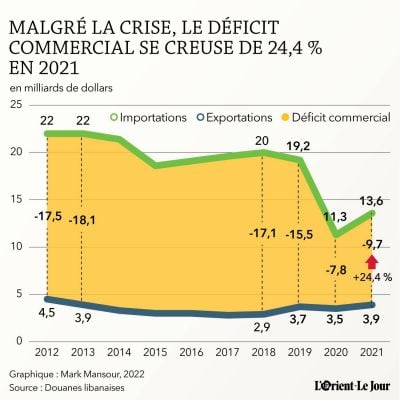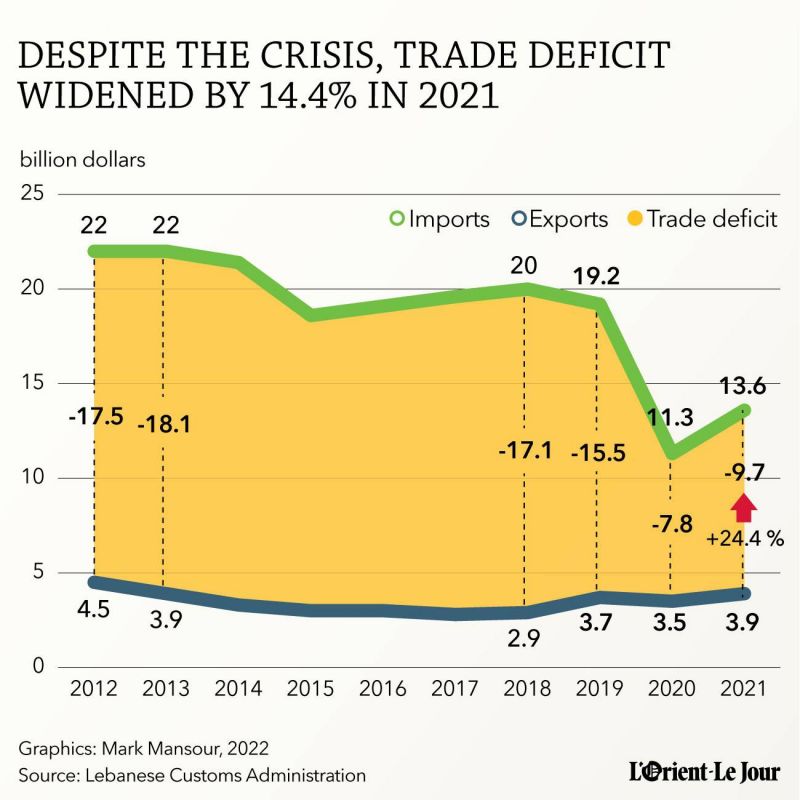
The Lebanese Customs Administration had not updated its data since August, and the only available data is for March 2021 and the preceding period.
And then, all of a sudden, right when the Central Administration of Statistics was updating its national accounts and the International Monetary Fund was in Beirut for a series of meetings in response to the Lebanese authorities’ request for financial assistance, the Customs Administration updated its figures and caught up with some of the delay.
While their website is now displaying data for the entirety of 2021, the picture is disconcerting, given the country’s situation.
This is because despite the loss in value of the Lebanese lira, the collapse of purchasing power, the depletion of foreign reserves and the multiple crises that have rocked the country since 2019, Lebanon’s trade deficit went up again.
This widening of the deficit came after consecutive decreases during the previous two years, against the backdrop of the depletion of the central bank’s foreign currency reserves, which were used to stabilize the exchange rate on the market, before being limited to subsidization of basic imports in October 2019.
Thus, at the end of 2021, this deficit reached $9.7 billion, or an increase of 24.4 percent compared with 2020, in which this balance had improved by 49.7 percent, standing at $7.8 billion.
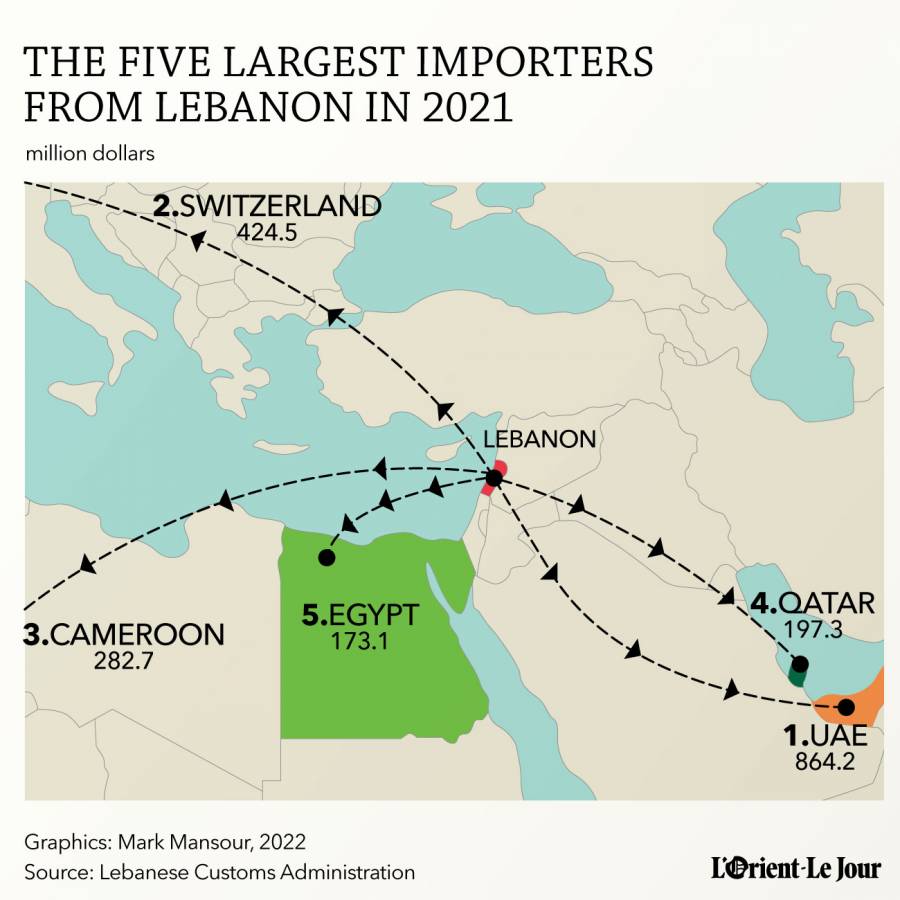
A 19.5 percent increase in fuel imports
This increase is directly linked to the growth of imports outpacing the growth of exports.
According to figures issued by the Customs Administration, Lebanese imports are worth $13.6 billion in 2021, an increase by $2.3 billion compared with the previous fiscal year, a 20.6 percent increase, while exports went up by only $342 million, reaching $3.9 billion, or a 9.6 percent rise compared with 2020.
In detail, imports grew mainly due to increases in the amount of transportation equipment ($1.1 billion; +137.7 percent), jewelry and precious metals ($1.2 billion; +38.5 percent), electrical and mechanical equipment ($1.2 billion; 31.6 percent) and fuels ($3.9 billion; 19.5percent).
It should be noted, however, that the increase in hydrocarbon imports was caused by the increase in global oil prices in 2021 and not by the import of more fuel.
Indeed, the price of a barrel of oil rose from $60 at the beginning of the year to more than $70 at the end of 2021, after briefly rising to more than $75.
However, according to the Customs Administration’s figures, the quantity of fuel imported by Lebanon dropped 17.1 percent in 2021 compared to 2020.
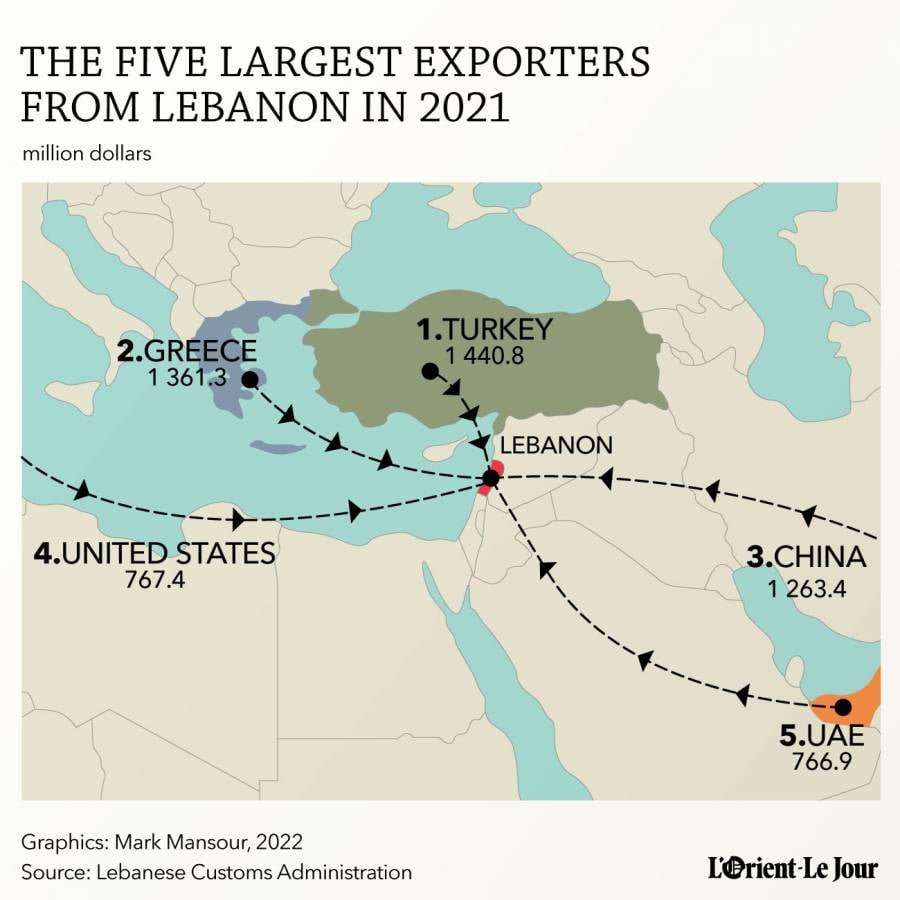
In 2021, 62.5 percent of imported goods transited through the Beirut port, compared with 62.3 percent in 2020. The capital’s port remains by far the most important infrastructure for trade, despite the significant damage caused by the blast on Aug. 4, 2020.
The Beirut International Airport, which saw 21.8 percent of imports in 2021 compared with 25.2 percent in 2020, and the Port of Tripoli, with 10.2 percent in 2021, compared with 7.9 percent in 2020, come in the second and third place respectively.
The latter has been operated since the end of February by the global giant CMA CGM after it purchased 100 percent of the shares and assets of Gulftainer Lebanon, the operator that previously managed the shipping container terminal there.
In addition to its presence in the North, CMA CGM group has also won a contract to run the container terminal at the Beirut port with its 16 giant cranes.
The rest of the goods were imported via the Ports of Saida and Sour and the various border crossings.
As for the most important suppliers of goods to Lebanon, Turkey came in first place in 2021 with $1.44 billion in imports. Greece and China complete the podium with $1.36 billion and $1.26 billion respectively.
In the previous year, the top three consisted of the United States ($936.1 million), Greece ($857.6 million) and Turkey ($810.9 million).
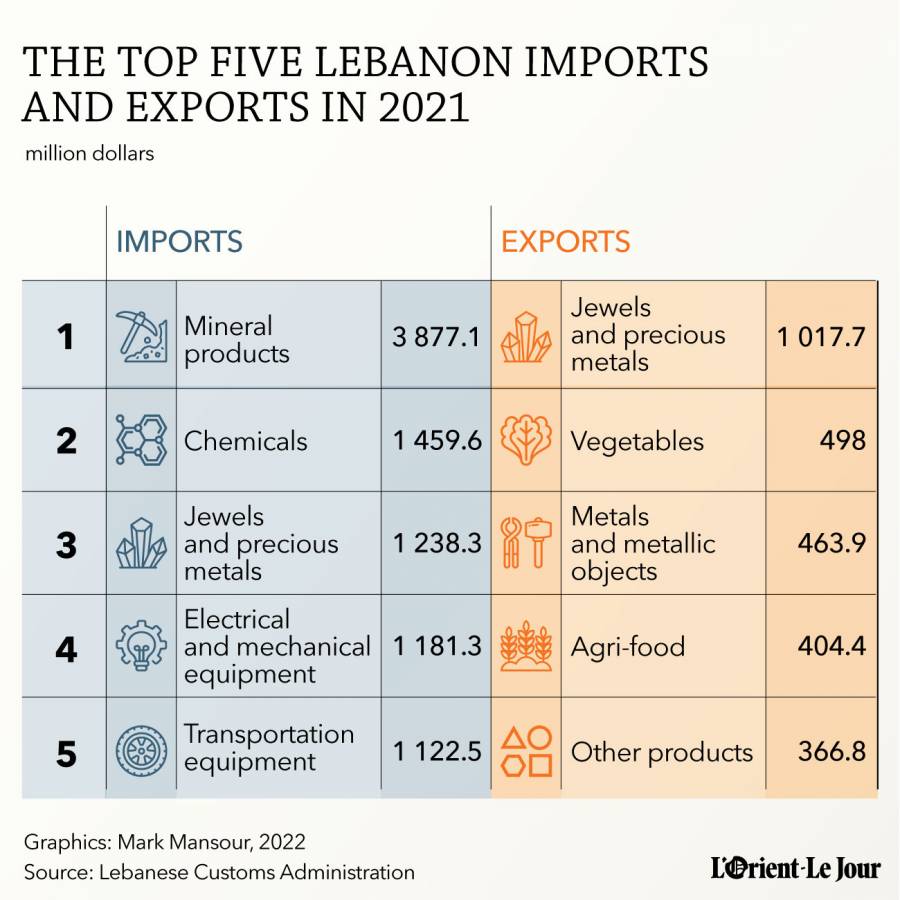
Cameroon joins the top three
In terms of exports, the $342 million increase in 2021 was mainly due to increased sales of miscellaneous products abroad, including furniture (which hit $366.8 million; +345.5 percent), vegetables ($498 million; +113.8 percent) and metals and metal objects ($463.9 million; +51.7 percent).
Similar to imports, exported goods mainly left Lebanon through the Beirut port (52.6 percent in 2021, compared with 40.1 percent in 2020), Beirut International Airport (33.3 percent in 2021, compared with 47.7 percent in 2020) and the port of Tripoli (7.5 percent in 2021, compared with 5.1 percent in 2020).
The rest of the exported goods were sent via the above-mentioned transit points.
As for the countries to which Lebanon exported the most in 2021, the United Arab Emirates comes first with $864.2 million, followed by Switzerland ($424.5 million) and Cameroon ($282.7 million).
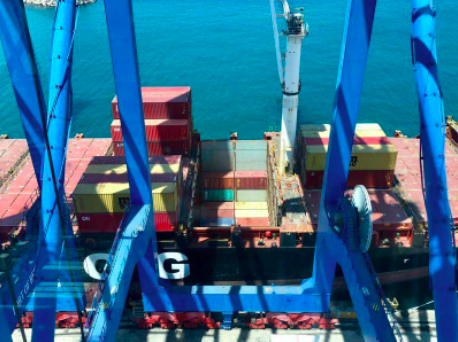 A photo taken from one of the cranes at the container terminal at the Port of Beirut. (Credit: PHB)
A photo taken from one of the cranes at the container terminal at the Port of Beirut. (Credit: PHB)
Moreover, the latter is the country to which Lebanese exports have increased the most: An increase by 3,161 percent in one year was recorded, which allowed this country to join the podium at a time when it was ranked 49 in 2020.
This increase was caused by the booming export of furniture to Cameroon, which rose from just $1.1 million in 2020 to more than $275 million in 2021.
In 2020, Switzerland was in first place ($1.05 billion), while the United Arab Emirates ($460.3 million) and Saudi Arabia ($217.7 million) completed the top three.
This article was originally published in French in L'Orient-Le Jour.
